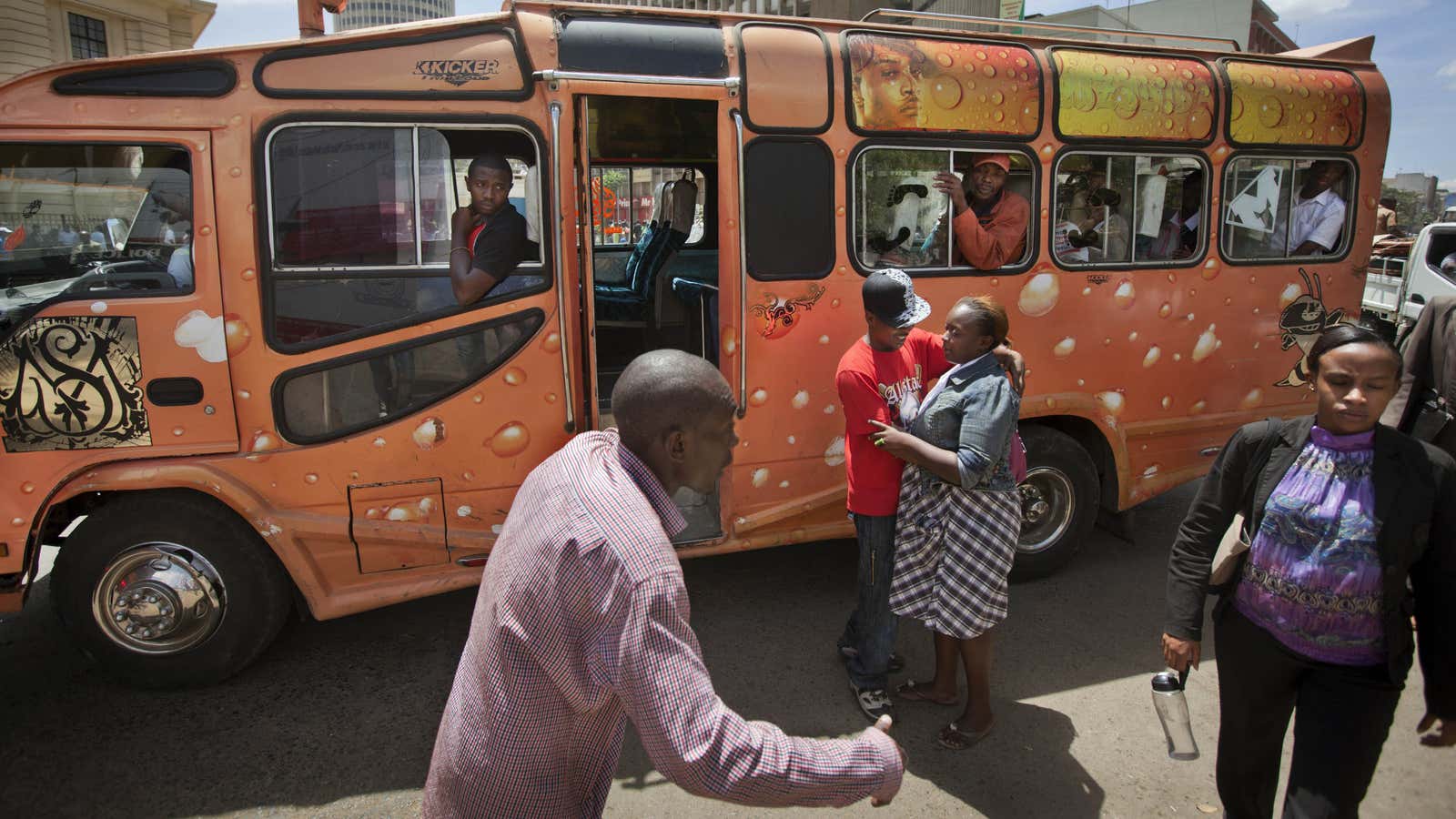Google just announced a new payment card for public buses in Nairobi. Christened BebaPay, the cards are a collaboration with Equity Bank, the biggest bank in Kenya. For the moment, the card only works on a handful of routes on Nairobi’s infamous matatu, homicidal minibuses that tear through the city’s thick traffic. BebaPay (beba is Swahili for “to carry”) started as a pilot project last May but today marked the formal launch, with Kenya’s vice-president in attendance.
Cards have a huge advantage over cash. For one, it’s much harder to get robbed, which is something of a problem in Nairobi. It is also more difficult for the bus driver to rip off passengers (though they still try).
But according to Google’s official Africa blog, buses are only the first step:
In time, Equity Bank will roll out BebaPay more widely, beyond the world of transport. The free BebaPay app turns any NFC-enabled Android phone into a card reader, which means that shops, traders and small businesses can use BebaPay to accept payments from customers, without needing expensive tills and cash registers. [emphasis mine]
There’s more. Dorothy Ooko, Google’s public affairs manager for East Africa told Quartz that the plan is to take Beba to other African countries.
This a smart move. Only 20% of African families have bank accounts (pdf). That is one reason M-Pesa became the world’s most successful mobile money service. Nearly 70% of the Kenya’s adults use it and a quarter of the country’s GDP passes through the service. But paying for things with M-Pesa is a cumbersome process; it takes too long and involves too many steps. So with few bank accounts and fewer debit or credit cards, Kenya runs mostly on cash. The economy suffers as a result, losing up to 40% of its revenue to unaccounted-for payments.
That’s where BebaPay comes in. As a contactless card, using it to spend money is effortless. If it takes off, it could become to Kenya’s informal retail sector what M-Pesa is to transfers. “The idea is that the woman selling vegetables on the street doesn’t have to carry money. She will have her mobile phone and the other person will have their card,” Ooko says. BebaPay can “enable these cashless transactions for people who do not have access to MasterCard and Visa,” she added.
That small-time vendor woman on the street was likely never going to be on the horizon of giant companies like MasterCard or Visa. But by getting in early, Google ensures that when millions of Kenyans—and indeed Africans—get their first bank accounts, they will already have an attachment to it. BebaPay is another sign that with every passing day, it is becoming increasingly inaccurate to call Google an internet company.
